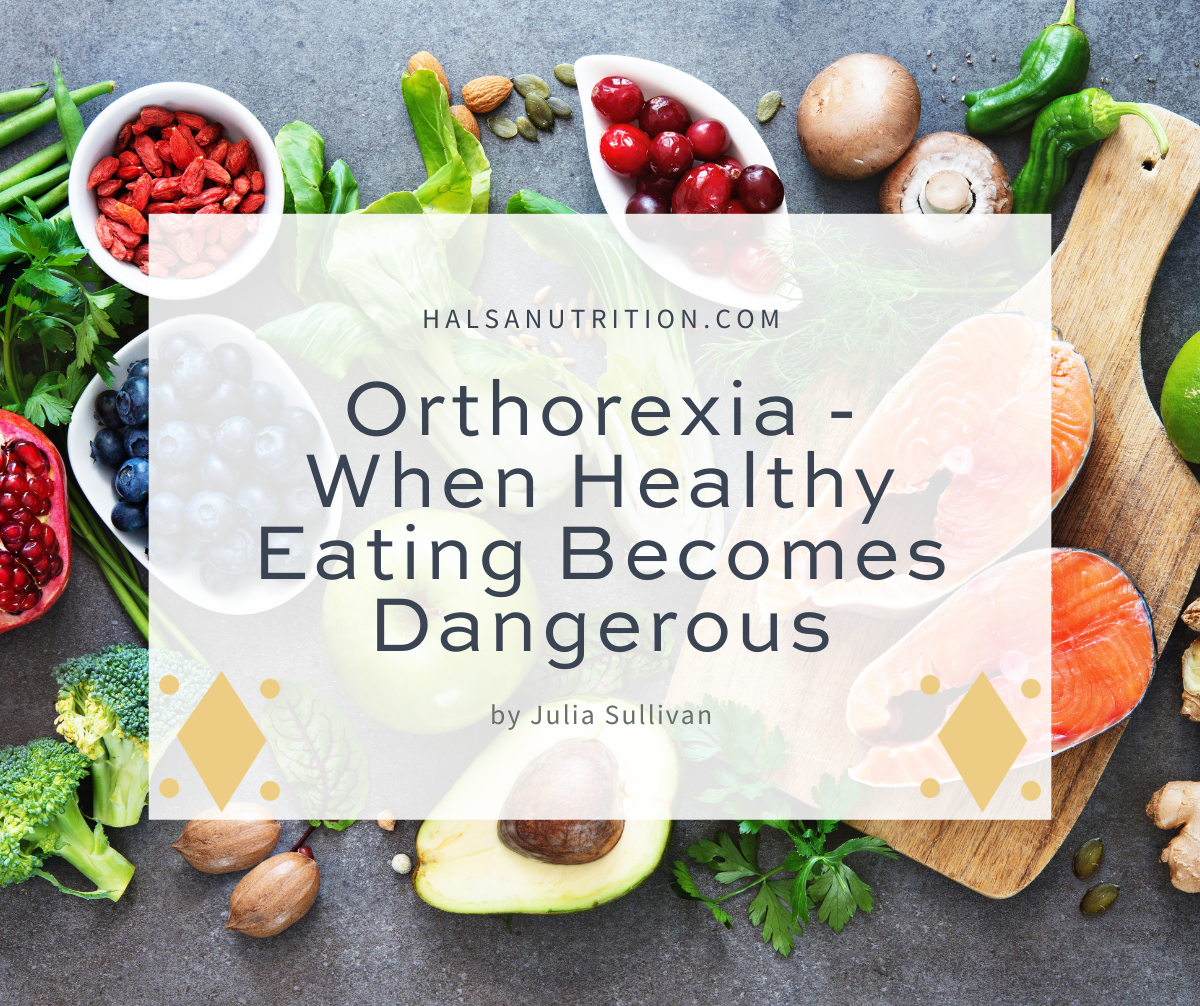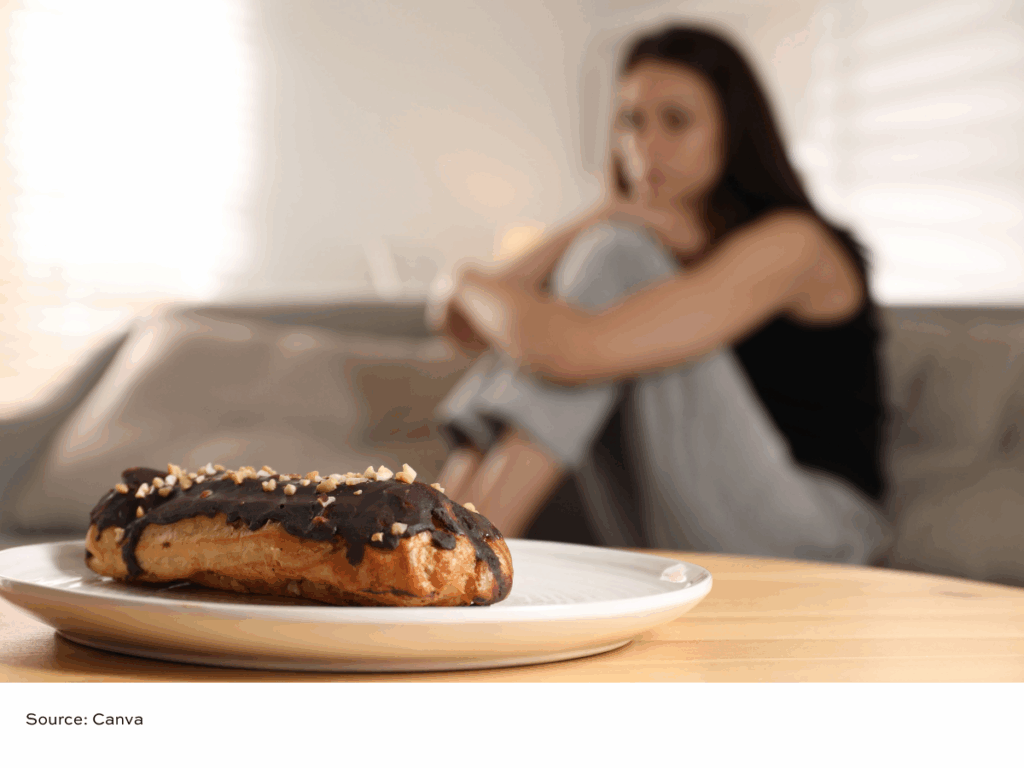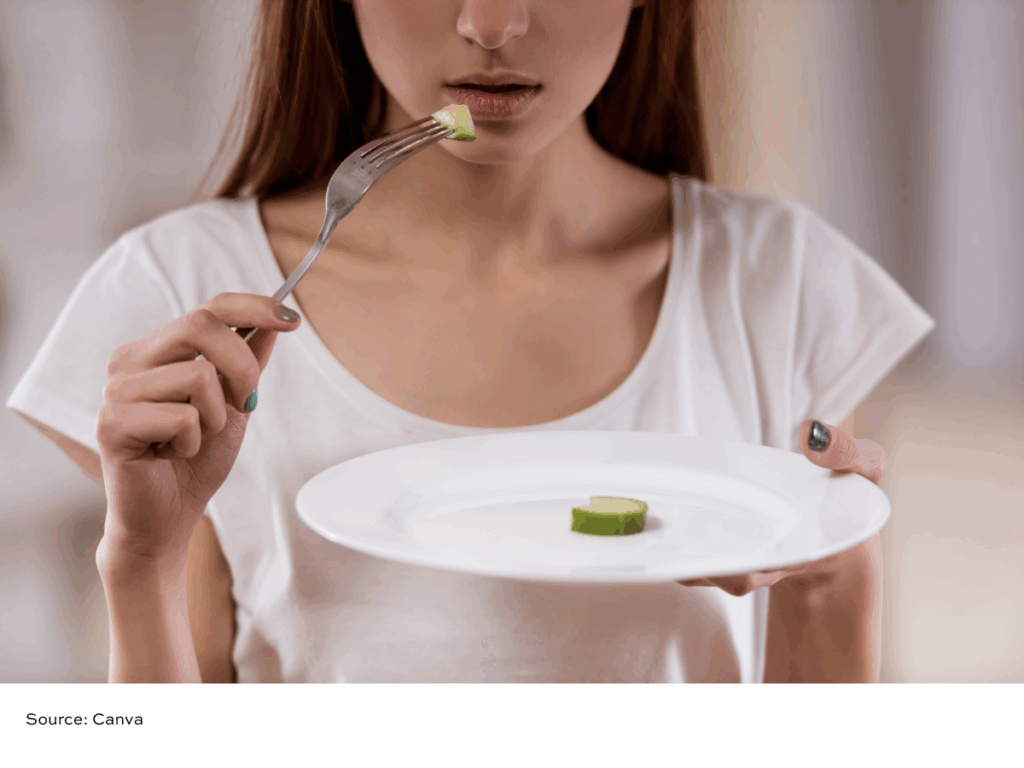
Orthorexia – When Healthy Eating Becomes Dangerous
Estimated reading time: 6 minutes
by Julia Sullivan
What is Orthorexia?
Orthorexia is defined as an unhealthy obsession with healthy foods. Orthorexia is classified as an unspecified eating disorder, meaning that it does not fit the guidelines to be diagnosed as a specified eating disorder. The term is associated with people who chase restrictive diets and have an intense concentration and obsession with food preparation and ritual-like eating patterns. You may be thinking, “What is the issue with eating only healthy foods?” Unfortunately, this intense focus on eating healthy can lead to disordered eating, nutrient deficiencies, medical issues, and an overall poor quality of life. To learn more about why eating only healthy foods can be unhealthy, keep reading!
Diet influences lead to unhealthy and rigid eating
With the growing popularity of the internet, social media influencers, and new diet fads, people have become influenced to ‘drop the unwanted weight’. While orthorexia often becomes a restrictive diet, and may come about because a person desires to lose weight, it generally doesn’t begin with weight, but rather, with a desire to eat healthy or “clean.” People with orthorexia tend to be more focused on the quality of their food than the quantity of their food. That said, people with orthorexia commonly shun whole food groups or types of food, leading to restrictive diets similar to weight loss diets.
How does orthorexia happen?
People with orthorexia have become so obsessed with only eating healthy foods that they may begin to starve their bodies because they are not getting proper nutrition. This is often accompanied by an inflexible mindset about what they can eat, worry about their health, and anxiety around foods that they consider “bad.” Their main concern is not body image or weight, but rather overall health.

The underlying causes for orthorexia include:
- Strict focus on food quality
- Desire to maximize health
- Limited insight regarding the effects of diet on health
- Food guilt
- Desire to be healthy, natural, or pure while entertaining unrealistic beliefs about food
- Perfectionism
- Anxiety
- Intrusive thoughts
- Focus on contamination
- Desire to flaunt their eating behaviors
Sometimes, orthorexia can overlap with other health issues, including:
- Anorexia nervosa
- Obsessive-compulsive disorder (OCD)
- Obsessive-compulsive personality disorder (OCPD)
- Illness anxiety disorder
How is orthorexia diagnosed?
There are different criteria to diagnose orthorexia. Here are some criteria for diagnosis:
- Consumes a nutritionally unbalanced diet, foods they determine “pure”
- Worries about impure foods and the effects they will have on them
- Avoidance of foods like fats, preservatives, and animal products
- Impairment of physical health, like malnutrition, caused by an unbalanced diet
- Distress or impairment of functioning because of obsessive beliefs

Why is orthorexia dangerous?
By overanalyzing what you eat and being overly focused on how “healthy” the food is, you are at risk of becoming malnourished. Along with this, with the overanalysis of foods, you are beginning to develop disordered eating habits. Orthorexia can also lead to chronic stress and anxiety, which is not good for the mind or the body.
People with orthorexia may start with a desire to eat healthily. Often, they are lauded for being such a “healthy eater.” However, when the focus becomes intense and inflexible, it’s no longer healthy. In fact, it can become so restrictive in nature that it turns into a full-blown eating disorder, such as anorexia nervosa.
A parent’s “clean eating” focus can also harm their kids. For example, if parents are stressed about their children eating processed foods, the child will pick up on that stress. Likewise, not allowing their kids to enjoy all foods or labeling certain foods as “bad” may impact the child’s relationship with food and lead to more serious issues down the road.
How to recognize and treat orthorexia
The implementation of intuitive eating makes it a bit easier for people to leave their diet mindset behind and instead focus on how food makes them feel. It is difficult with people with orthorexia because they have been in such a rigid mindspace, which doesn’t allow them to function healthily with the thought of eating something they think is bad for them.
Studies have shown that there is a positive correlation between intuitive eating and the treatment of orthorexia. Here are some tips and tricks to help implement intuitive eating into your life:
- Ditch the diet mentality
- A “clean eating plan” is still a diet in disguise
- Make peace with food and ditch the food police:
- Stop labeling foods as good/bad
- Eat what you want to eat and what makes you feel your best
- Keep in touch with your mental health, and don’t hesitate to seek out help
- Speak to a Registered Dietitian who is trained in intuitive eating about your concerns and goals

Although the number of people diagnosed with orthorexia is small, it is a growing condition that needs to be monitored as the influence of new diet fads reaches the internet and influences young, vulnerable children. It is important to keep your eyes out for the signs of orthorexia in yourself and your family. By keeping an open mind, intuitive eating principles can help decrease the rates of orthorexia around the world. Be mindful, respect your body, and eat to feel your best.
Sources:
- Orthorexia and Orthorexia Nervosa: A Comprehensive Examination of Prevalence, Risk Factors, Diagnosis, and Treatment
- The clinical basis of orthorexia nervosa: emerging perspectives
- Exploring the Link between Mindful Eating, Instagram Engagement, and Eating Disorders: A Focus on Orthorexia Nervosa
Other posts you might like:
- National Eating Disorders Awareness Week and College Students
- The Problem with “Clean Eating”
- Disordered Eating: More Common than You Realize
- Intuitive Eating for Teens
- 10 Non-Diet Books That Inspire
About the Author
Julia Sullivan is a senior, exercise science-allied health major at Endicott College. She’s on the path to becoming an Exercise Physiologist with an interest in cardiac nutrition. Her interests and passions lie in helping people recover from injury and become healthier to enjoy life to the fullest.
This article was edited and reviewed by Maria Adams, MS, MPH, RDN, LDN, a registered dietitian and Certified Intuitive Eating Counselor. Maria takes a weight-inclusive approach and helps individuals rediscover the joy of food, eat to feel their best, and heal from chronic dieting and disordered eating. She holds a Bachelor of Science Degree in Nutrition Science, a Master of Science in Nutrition Communication, and a Master of Public Health.
Leave a Reply